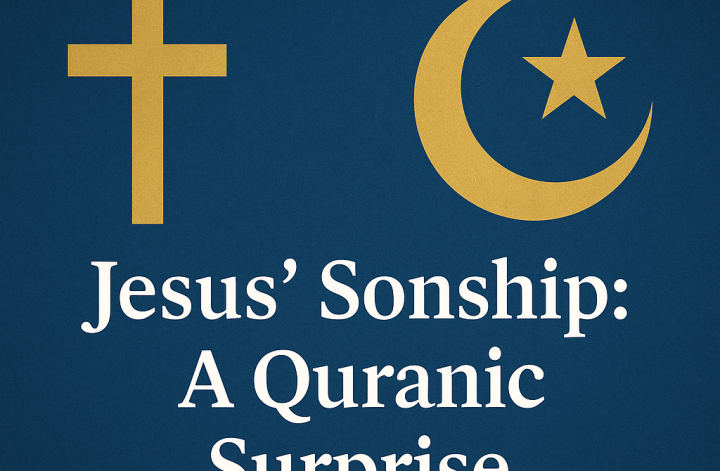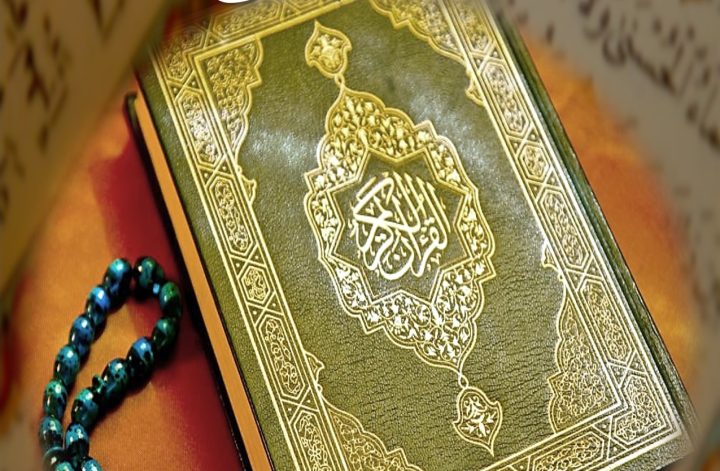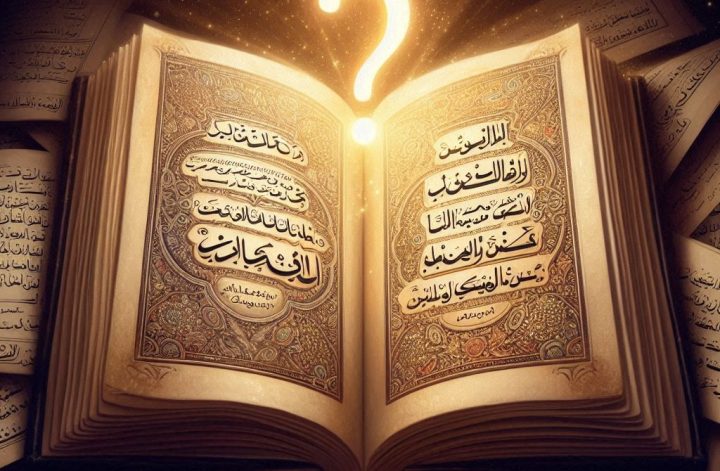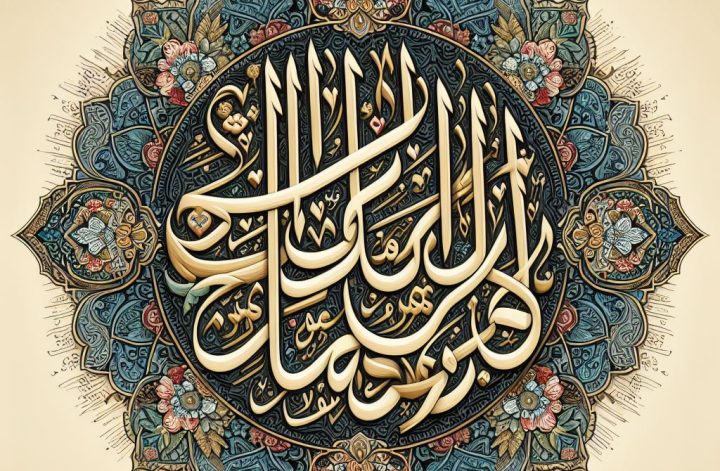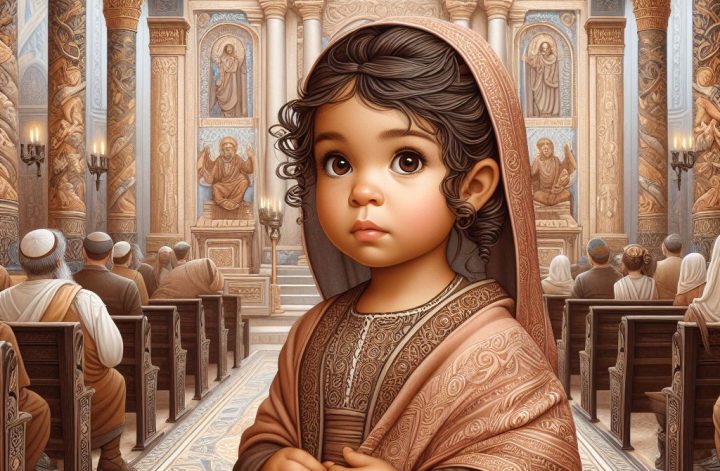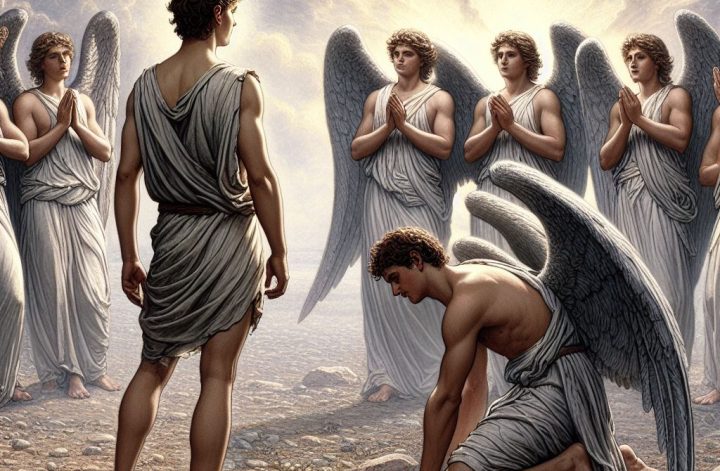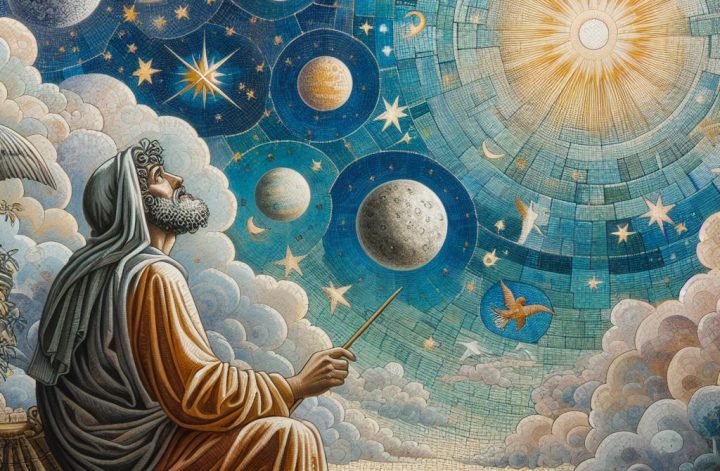If the Quran is true, then the Bible is true. But if the Bible is true, then the Quran is false.
That is the dilemma. I know this will disturb some, and others may take offense. But I want to begin by saying I’m not looking to do any of those things. My interest here is truth. I am interested in what we can establish from primary texts. As I often remark, I do not pretend to be an expert. In fact, I would appreciate substantive, reasoned pushback and clarification.
I will present my argument in three blocks. First, I will show that the Quran consistently approves of the Bible, especially the Torah and the Injeel (i.e., Gospels), as divinely inspired and unalterable words of Allah. Then, I will show that the Quran is often wrong in many details compared to the Bible. Finally, I’ll demonstrate that the Bible knows nothing about and does not anticipate the Quran.
We begin with Surah Al-Baqara, Verse 136:
قُولُوا آمَنَّا بِاللَّهِ وَمَا أُنزِلَ إِلَيْنَا وَمَا أُنزِلَ إِلَىٰ إِبْرَاهِيمَ وَإِسْمَاعِيلَ وَإِسْحَاقَ وَيَعْقُوبَ وَالْأَسْبَاطِ وَمَا أُوتِيَ مُوسَىٰ وَعِيسَىٰ وَمَا أُوتِيَ النَّبِيُّونَ مِن رَّبِّهِمْ لَا نُفَرِّقُ بَيْنَ أَحَدٍ مِّنْهُمْ وَنَحْنُ لَهُ مُسْلِمُونَ
Say, [O believers], “We have believed in Allah and what has been revealed to us and what has been revealed to Abraham and Ishmael and Isaac and Jacob and the Descendants and what was given to Moses and Jesus and what was given to the prophets from their Lord. We make no distinction between any of them, and we are Muslims [in submission] to Him.”
These verses of Quran 2 clearly imply consistency and continuity in the messages revealed to Abraham all the way to Jesus. Verse 146 adds, “Those to whom We gave the Scripture know him as they know their own sons,” even if not all of them were faithful. To avoid any misconception, Allah further reveals Quran 5, Surah Al-Maeda, Verse 46:
وَقَفَّيْنَا عَلَىٰ آثَارِهِم بِعِيسَى ابْنِ مَرْيَمَ مُصَدِّقًا لِّمَا بَيْنَ يَدَيْهِ مِنَ التَّوْرَاةِ وَآتَيْنَاهُ الْإِنجِيلَ فِيهِ هُدًى وَنُورٌ وَمُصَدِّقًا لِّمَا بَيْنَ يَدَيْهِ مِنَ التَّوْرَاةِ وَهُدًى وَمَوْعِظَةً لِّلْمُتَّقِينَ
And We sent, following in their footsteps, Jesus, the son of Mary, confirming that which came before him in the Torah; and We gave him the Gospel, in which was guidance and light and confirming that which preceded it of the Torah as guidance and instruction for the righteous.
Allah has been consistent in his messaging. The message revealed to Jesus in the Gospels continues and confirms what was revealed to Moses in the Torah. Allah also says the Gospel message of Jesus “was guidance and light” for the righteous. In fact, Allah so approves of the Gospel that he further says:
Surah Al-Maeda, Verse 47:
وَلْيَحْكُمْ أَهْلُ الْإِنجِيلِ بِمَا أَنزَلَ اللَّهُ فِيهِ وَمَن لَّمْ يَحْكُم بِمَا أَنزَلَ اللَّهُ فَأُولَٰئِكَ هُمُ الْفَاسِقُونَ
And let the People of the Gospel judge by what Allah has revealed therein. And whoever does not judge by what Allah has revealed – then it is those who are the defiantly disobedient.
So, again, we see that Allah claims to have revealed the Gospel and expects Christians to live and judge by it. Indeed, Allah rewarded those who faithfully lived by the Gospel:
Surah Al-Hadid, Verse 27:
ثُمَّ قَفَّيْنَا عَلَىٰ آثَارِهِم بِرُسُلِنَا وَقَفَّيْنَا بِعِيسَى ابْنِ مَرْيَمَ وَآتَيْنَاهُ الْإِنجِيلَ وَجَعَلْنَا فِي قُلُوبِ الَّذِينَ اتَّبَعُوهُ رَأْفَةً وَرَحْمَةً وَرَهْبَانِيَّةً ابْتَدَعُوهَا مَا كَتَبْنَاهَا عَلَيْهِمْ إِلَّا ابْتِغَاءَ رِضْوَانِ اللَّهِ فَمَا رَعَوْهَا حَقَّ رِعَايَتِهَا فَآتَيْنَا الَّذِينَ آمَنُوا مِنْهُمْ أَجْرَهُمْ وَكَثِيرٌ مِّنْهُمْ فَاسِقُونَ
Then We sent following their footsteps Our messengers and followed [them] with Jesus, the son of Mary, and gave him the Gospel. And We placed in the hearts of those who followed him compassion and mercy and monasticism, which they innovated; We did not prescribe it for them except [that they did so] seeking the approval of Allah . But they did not observe it with due observance. So We gave the ones who believed among them their reward, but many of them are defiantly disobedient.
It is typically at this point in conversations that Muslim apologists generally claim that the Gospel has been corrupted. There are at least two problems with this claim. First, the Quran never makes such a claim, as shown elsewhere. On the contrary, the Quran plainly says the Bible of Muhammed’s time was reliable and trustworthy (5:43 – 44). Second, the Quran forbids such a claim. If the Gospel can be corrupted, being the authorized word of Allah, then the Quran can be corrupted. You can’t have one but not the other. Besides, Allah says his words are unalterable:
Surah Al-Anaam, Verse 34:
وَلَقَدْ كُذِّبَتْ رُسُلٌ مِّن قَبْلِكَ فَصَبَرُوا عَلَىٰ مَا كُذِّبُوا وَأُوذُوا حَتَّىٰ أَتَاهُمْ نَصْرُنَا وَلَا مُبَدِّلَ لِكَلِمَاتِ اللَّهِ وَلَقَدْ جَاءَكَ مِن نَّبَإِ الْمُرْسَلِينَ
And certainly were messengers denied before you, but they were patient over [the effects of] denial, and they were harmed until Our victory came to them. And none can alter the words of Allah . And there has certainly come to you some information about the [previous] messengers.
Surah Al-Anaam, Verse 115:
وَتَمَّتْ كَلِمَتُ رَبِّكَ صِدْقًا وَعَدْلًا لَّا مُبَدِّلَ لِكَلِمَاتِهِ وَهُوَ السَّمِيعُ الْعَلِيمُ
And the word of your Lord has been fulfilled in truth and in justice. None can alter His words, and He is the Hearing, the Knowing.
So, we see that Allah’s words cannot be altered. Furthermore, the popular idea among Muslims that the Bible was corrupt ought to have been abandoned after the discovery of the Dead Sea Scrolls. These scrolls belonged to a community that existed before Jesus’s time, and the Torah therein is the same as the one in our Bible.
Here we are, then, in our argument. The Quran consistently affirms that the messages revealed to prophets like Abraham, Moses, David, and Jesus all ultimately derived from Allah, and Allah’s words are incorruptible. Indeed, the Quran explicitly makes specific relevant claims:
Surah Ghafir, Verse 78:
وَلَقَدْ أَرْسَلْنَا رُسُلًا مِّن قَبْلِكَ مِنْهُم مَّن قَصَصْنَا عَلَيْكَ وَمِنْهُم مَّن لَّمْ نَقْصُصْ عَلَيْكَ وَمَا كَانَ لِرَسُولٍ أَن يَأْتِيَ بِآيَةٍ إِلَّا بِإِذْنِ اللَّهِ فَإِذَا جَاءَ أَمْرُ اللَّهِ قُضِيَ بِالْحَقِّ وَخَسِرَ هُنَالِكَ الْمُبْطِلُونَ
And We have already sent messengers before you. Among them are those [whose stories] We have related to you, and among them are those [whose stories] We have not related to you. And it was not for any messenger to bring a sign [or verse] except by permission of Allah . So when the command of Allah comes, it will be concluded in truth, and the falsifiers will thereupon lose [all].
The implication, again, is that the stories Allah revealed to Muhammed about prophets before him are correct and true. This means we should expect to find the same stories in the Bible, or, at the least, we should not find inconsistency. Again, the Quran supports this reading:
Surah Fussilat, Verse 43:
مَّا يُقَالُ لَكَ إِلَّا مَا قَدْ قِيلَ لِلرُّسُلِ مِن قَبْلِكَ إِنَّ رَبَّكَ لَذُو مَغْفِرَةٍ وَذُو عِقَابٍ أَلِيمٍ
Nothing is said to you, [O Muhammad], except what was already said to the messengers before you. Indeed, your Lord is a possessor of forgiveness and a possessor of painful penalty.
The problem begins when we compare what Allah supposedly revealed in the Bible to what Muhammed claims in the Quran. We find too many inconsistencies – the sort one might expect from a fabrication. Let us begin with Surah 10:
Surah Yunus, Verse 37:
وَمَا كَانَ هَٰذَا الْقُرْآنُ أَن يُفْتَرَىٰ مِن دُونِ اللَّهِ وَلَٰكِن تَصْدِيقَ الَّذِي بَيْنَ يَدَيْهِ وَتَفْصِيلَ الْكِتَابِ لَا رَيْبَ فِيهِ مِن رَّبِّ الْعَالَمِينَ
And it was not [possible] for this Qur’an to be produced by other than Allah , but [it is] a confirmation of what was before it and a detailed explanation of the [former] Scripture, about which there is no doubt, from the Lord of the worlds.
The Quran is only about one-sixth the size of the Bible, yet it claims to be a “detailed explanation” of the Bible. The easily verifiable truth is that the Quran lacks details and often briefly alludes to biblical stories, expecting the readers to consult the Bible for details. For instance, in Quran 2, while seeking a justification for a holy army that fights on behalf of Allah, Muhammed leans on the story of the ancient Israelites in the days of kings Saul and David. The Quran devotes only six short verses to the story in 2:246 – 251, while the Bible has ten chapters for it. Unsurprisingly, what ensues is a confusion. Consider this:
Surah Al-Baqara, Verse 246:
أَلَمْ تَرَ إِلَى الْمَلَإِ مِن بَنِي إِسْرَائِيلَ مِن بَعْدِ مُوسَىٰ إِذْ قَالُوا لِنَبِيٍّ لَّهُمُ ابْعَثْ لَنَا مَلِكًا نُّقَاتِلْ فِي سَبِيلِ اللَّهِ قَالَ هَلْ عَسَيْتُمْ إِن كُتِبَ عَلَيْكُمُ الْقِتَالُ أَلَّا تُقَاتِلُوا قَالُوا وَمَا لَنَا أَلَّا نُقَاتِلَ فِي سَبِيلِ اللَّهِ وَقَدْ أُخْرِجْنَا مِن دِيَارِنَا وَأَبْنَائِنَا فَلَمَّا كُتِبَ عَلَيْهِمُ الْقِتَالُ تَوَلَّوْا إِلَّا قَلِيلًا مِّنْهُمْ وَاللَّهُ عَلِيمٌ بِالظَّالِمِينَ
Have you not considered the assembly of the Children of Israel after [the time of] Moses when they said to a prophet of theirs, “Send to us a king, and we will fight in the way of Allah “? He said, “Would you perhaps refrain from fighting if fighting was prescribed for you?” They said, “And why should we not fight in the cause of Allah when we have been driven out from our homes and from our children?” But when fighting was prescribed for them, they turned away, except for a few of them. And Allah is Knowing of the wrongdoers.
Surah Al-Baqara, Verse 247:
وَقَالَ لَهُمْ نَبِيُّهُمْ إِنَّ اللَّهَ قَدْ بَعَثَ لَكُمْ طَالُوتَ مَلِكًا قَالُوا أَنَّىٰ يَكُونُ لَهُ الْمُلْكُ عَلَيْنَا وَنَحْنُ أَحَقُّ بِالْمُلْكِ مِنْهُ وَلَمْ يُؤْتَ سَعَةً مِّنَ الْمَالِ قَالَ إِنَّ اللَّهَ اصْطَفَاهُ عَلَيْكُمْ وَزَادَهُ بَسْطَةً فِي الْعِلْمِ وَالْجِسْمِ وَاللَّهُ يُؤْتِي مُلْكَهُ مَن يَشَاءُ وَاللَّهُ وَاسِعٌ عَلِيمٌ
And their prophet said to them, “Indeed, Allah has sent to you Saul as a king.” They said, “How can he have kingship over us while we are more worthy of kingship than him and he has not been given any measure of wealth?” He said, “Indeed, Allah has chosen him over you and has increased him abundantly in knowledge and stature. And Allah gives His sovereignty to whom He wills. And Allah is all-Encompassing [in favor] and Knowing.”
This, in fact, did not happen. In the Bible, the Israelites wanted a human king after the prophet Samuel had become old and his children were not competent judges:
1 Samuel 8:4-5 ESV
[4] Then all the elders of Israel gathered together and came to Samuel at Ramah [5] and said to him, “Behold, you are old and your sons do not walk in your ways. Now appoint for us a king to judge us like all the nations.”
Unlike the Quran’s stated motive in 2:246, the Israelites did not ask for a king so they could become a fighting people. They wanted a king to judge their affairs. Of course, they knew that kings also fought battles. Indeed, Samuel warned them that the king they would get would rule them unfairly by conscripting their children into his army, perhaps against their will (1 Samuel 8:11 – 14). But when Saul was finally revealed as the king, the people did not protest – they were too desperate for a king. Indeed, here is how the Bible records their response:
1 Samuel 10:24 ESV
And Samuel said to all the people, “Do you see him whom the Lord has chosen? There is none like him among all the people.” And all the people shouted, “Long live the king!”
The protest that the Quran attributes to the people against the selection of Saul was actually something Saul himself did. He was a man of low self-esteem. Upon having a chance to speak with the revered prophet Samuel, Saul said:
1 Samuel 9:21 ESV
Saul answered, “Am I not a Benjaminite, from the least of the tribes of Israel? And is not my clan the humblest of all the clans of the tribe of Benjamin? Why then have you spoken to me in this way?”
It is low self-esteem masquerading as humility. The additional details in Quran 2:247 are apocryphal. That is not how it happened.
This sort of things are not the exceptions but the rules. The Quran repeatedly misses all kinds of details too many to count. For instance, the Quran says Pharaoh’s wife raised Moses in the palace while the Bible says it was Pharaoh’s daughter. Quran 12:70 says a “golden bowl” belonging to the prince of Egypt, Joseph, was placed in Benjamin’s bag while the Bible says it was a “silver cup.” Then there are instances of extra-biblical embellishment of biblical stories. I have blogged about cases of the Quran’s use of known fictional Judeo-Christian materials in its embellishment. For instance, the Quran tells a story of the boy Jesus animating a clay bird. This story existed in a recognizable form in the non-authoritative, pseudepigraphal Infancy Gospel of Thomas. In other words, while claiming divine revelation, we see that the Quran merely repurposed human materials known to critics in Muhammed’s day.
Now, we are ready to proceed to the final part of the argument. Consider the following:
Surah As-Saff, Verse 6:
وَإِذْ قَالَ عِيسَى ابْنُ مَرْيَمَ يَا بَنِي إِسْرَائِيلَ إِنِّي رَسُولُ اللَّهِ إِلَيْكُم مُّصَدِّقًا لِّمَا بَيْنَ يَدَيَّ مِنَ التَّوْرَاةِ وَمُبَشِّرًا بِرَسُولٍ يَأْتِي مِن بَعْدِي اسْمُهُ أَحْمَدُ فَلَمَّا جَاءَهُم بِالْبَيِّنَاتِ قَالُوا هَٰذَا سِحْرٌ مُّبِينٌ
And [mention] when Jesus, the son of Mary, said, “O children of Israel, indeed I am the messenger of Allah to you confirming what came before me of the Torah and bringing good tidings of a messenger to come after me, whose name is Ahmad.” But when he came to them with clear evidences, they said, “This is obvious magic.”
The Quran explicitly says Jesus anticipates the prophethood of Muhammed while also preserving evidence that even 7th century critics did not buy it. This verse has led generations of Muslims to attempt to locate Muhammed in the Bible. John is one common place Muslims go to. Some of the usual candidates are:
John 1:20-21 ESV
[20] He confessed, and did not deny, but confessed, “I am not the Christ.” [21] And they asked him, “What then? Are you Elijah?” He said, “I am not.” “Are you the Prophet?” And he answered, “No.”
John 14:16 ESV
And I will ask the Father, and he will give you another Helper, to be with you forever,
There are too many reasons why this move is effete and ridiculous. First, the first chapter of John forbids a Muslim from even looking in the book for Muhammed. A good portion of the Quran is devoted to Islamic monotheism and the denial of the divinity of Jesus. But John begins his gospel account thus:
John 1:1-4 ESV
[1] In the beginning was the Word, and the Word was with God, and the Word was God. [2] He was in the beginning with God. [3] All things were made through him, and without him was not any thing made that was made. [4] In him was life, and the life was the light of men.
John affirms a plurality in the Godhead and names Jesus as a member of the Godhead. Clearly, John envisions a different God than the Quranic Allah.
Second, the passages above clearly do not refer to Muhammed. The John 1:20 – 21 passage above is about the JEWISH Messiah, and verse 20 explicitly says that. Third, Muhammed died and did not resurrect and so he did not live “forever.” Even if he did, Muhammed never met the disciples of Jesus and could not have been with them forever. Fourth, the very next verse in John 14 explicitly names the referent, “the Spirit of Truth” who, in the narrative world of John, is also referred to as the Holy Spirit.
Besides, according to the Torah, which Allah supposedly revealed, it is IMPOSSIBLE for Muhammed (or anyone else in his genealogy) to be “the prophet.” When God called Abraham and promised him that his offspring will be a blessing to the world, God seemingly did not set the promise rolling ten years after. Abraham was worried and tried to help God out by taking a second wife, Hagar. Hagar gave birth to Ishmael, and Abraham reasoned that God’s promise and blessing might materialize through Ishmael’s lineage. But God explicitly rejected Ishmael and his lineage:
Genesis 17:18-21 ESV
[18] And Abraham said to God, “Oh that Ishmael might live before you!” [19] God said, “No, but Sarah your wife shall bear you a son, and you shall call his name Isaac. I will establish my covenant with him as an everlasting covenant for his offspring after him. [20] As for Ishmael, I have heard you; behold, I have blessed him and will make him fruitful and multiply him greatly. He shall father twelve princes, and I will make him into a great nation. [21] But I will establish my covenant with Isaac, whom Sarah shall bear to you at this time next year.”
Because he was Abraham’s son, God prospered Ishmael materially. But Ishmael was not going to bear the covenant of a seed of Abraham becoming a blessing to the world. Muhammed cannot be found anywhere in the Bible because Allah made sure of it centuries prior.
Here we are then. If the Quran is true, the Bible is true. But if the Bible is true, the Quran is demonstrably false. This is the Islamic Dilemma.
If you are an informed Muslim or know someone who is, consider sharing this piece with them.

